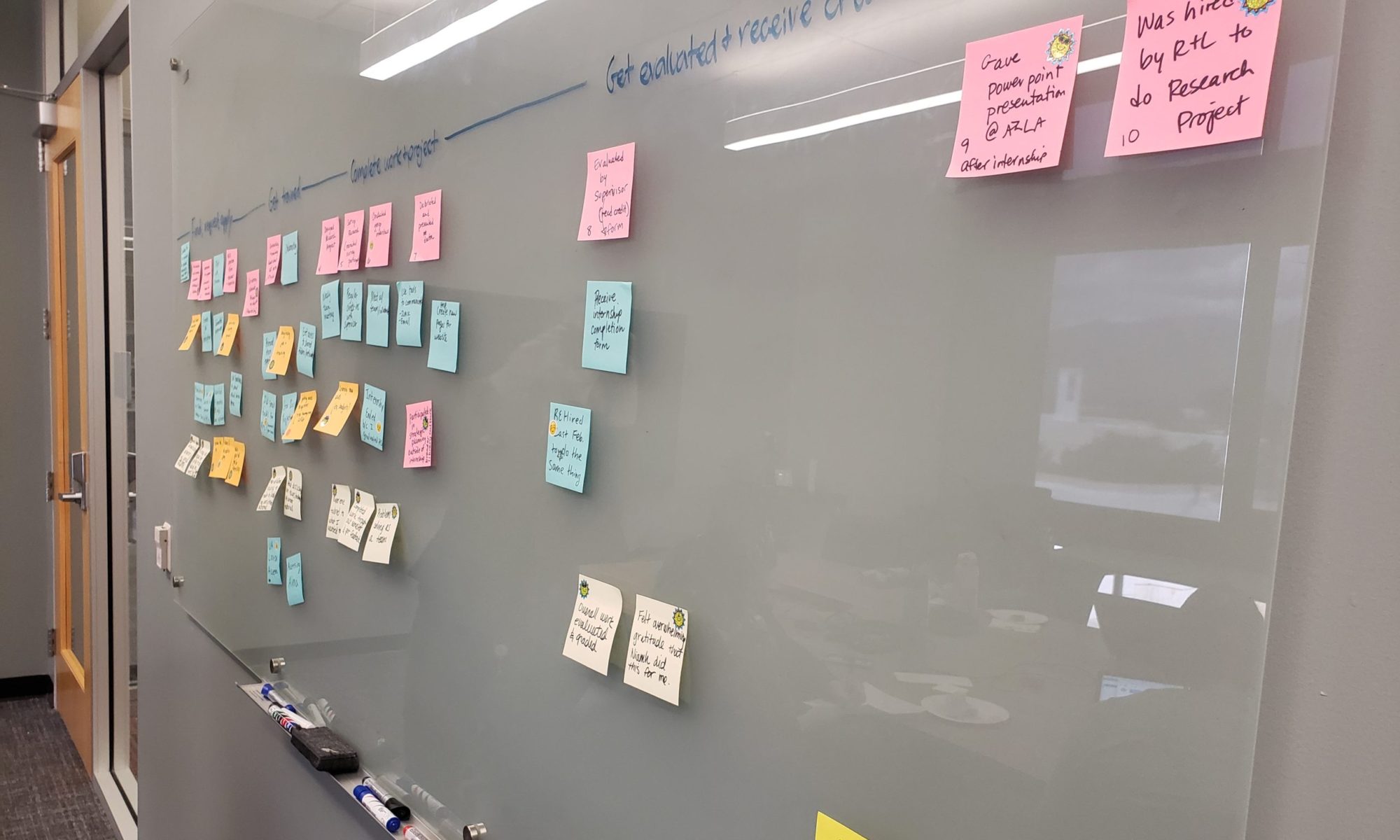Approaches to Assessing the User Experience
Student Union, University of Arizona 1303 E University Blvd, Tucson, AZ, United StatesRebecca Blakiston, Bob Liu, and Lara Miller present a workshop for staff at the University of Arizona. The everyday experience of students and faculty matters. It is critical to the university's long-term success. The field of user experience (UX) provides us with tools to build empathy, expand understanding, and recommend impactful solutions. In this hands-on …
Advancing Student Success: a Design Thinking Workshop
Online CA, United StatesRebecca delivers a design thinking workshop for staff of the Copley Library at the University of San Diego. Student success is critical to the mission of the university, but the needs and expectations of our students are evolving rapidly. As a library, how might we empower all students to be successful in 2020 and beyond? …
Writing for Your Library Website: Tips for Improving Your Content
Rebecca Blakiston presents online for ALA eLearning. Individuals visit our library websites for content, so it’s important to ensure our content is clear, concise, and created with our users’ needs in mind. Our content should help users quickly and easily complete tasks and get the answers to their questions on the first try. You’ll learn …
CNI: Fostering a UX Culture Across Campus
Online CA, United StatesRebecca Blakiston presents for the CNI Spring 2020 Membership Meeting. User experience (UX) is a multidisciplinary venture that encompasses research, design, content, architecture, engineering, and systems. At the University of Arizona, an informal community of practice emerged in 2017 called “UX@UA” to support cross-departmental learning and sharing of resources. This community now includes over 400 …
Do’s and Don’ts from the User Perspective
OnlineRebecca presents virtually as part of the NISO Humanities Roundtable. We design systems so that students and scholars can discover and access content, yet how do we know we are meeting their needs and expectations? How do we know if our language and taxonomies are enhancing or hindering discovery? In this presentation, you will learn …
Writing for Your Library Website: Tips for Improving Your Content
OnlineRebecca Blakiston presents online for ALA eLearning. Individuals visit our library websites for content, so it’s important to ensure our content is clear, concise, and created with our users’ needs in mind. Our content should help users quickly and easily complete tasks and get the answers to their questions on the first try. You’ll learn …
Florida Library Webinars: Website Content Strategy
OnlineDoes your website have content that is complicated, outdated, or irrelevant? Content strategy provides us with a set of principles, tools, and processes to sustain useful, usable, and findable content. In this presentation, learn how to identify content challenges, create content principles and style guides, and establish workflows to support the entire lifecycle of your …
Building UX Capacity Across Campus
OnlineRebecca presents online as part of the eduWeb Spring Innovation Showcase. Learn how to build community, leverage expertise, break down silos, and foster user-centered thinking and practices campus-wide. In many higher ed institutions, user experience (UX) expertise is scarce and lives in pockets across campus, such as libraries, IT, and online learning, as well as …
Florida Library Webinars: Writing for the Web
OnlineDo users struggle to understand content on your library website? People visit our websites to get answers to their questions, but are often overwhelmed with what they find. Fortunately, writing effectively for the web is a craft you can hone. In this presentation, learn tips for writing content that is concise, organized, and created with …
Florida Library Webinars: User Research Methods
OnlineDo you want feedback from your patrons? From surveys and focus groups to journey mapping and usability testing, our users can tell us a lot about what's working well and how we can improve. In this presentation, learn a variety of methods and how they can be conducted safely at a distance, and what we …







